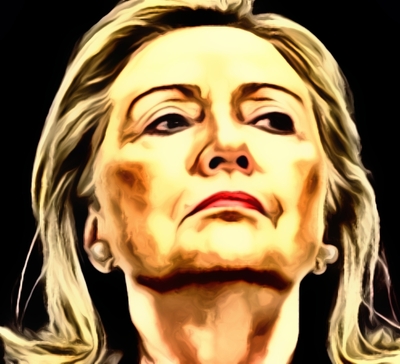
I was pretty sure I knew who to vote for earlier this month, until Jeffrey Cohen died.
See, when Ernest Overbey died on Jan. 2, his obituary in the Richmond Times-Dispatch instructed readers to "please vote for Donald Trump" (as well as to donate to the hospital that cared for him). I'm certainly not going to reject a dying man's wish, so that was that.
Then Mr. Cohen died in Pittsburgh. And his obituary in the Post-Gazette asked people, "Please do not vote for Donald Trump." (Or to donate to an educational foundation.)
So what is a conscientious person supposed to do with that?
If there's one thing that I know, it's that I'm not meant to vote for Hillary Clinton. Stephen Ryan of New York ("In lieu of flowers, please don't vote for Hillary"), Arnold Mininger of California ("In lieu of flowers, please don't vote for for Hillary"), Michael Klein of Michigan ("Opinionated (please don't vote for Hillary!), outspoken, sometimes even a little bit grumpy"), Elaine Fydrych of New Jersey ("In lieu of flowers, please do not vote for Hillary Clinton."), Eddylou Brown ("In lieu of flowers, please don't vote for Hillary") and Karl Kmentt of Ohio ("His only regret is NOT being able to vote against Hillary Clinton in the next presidential election") made that perfectly clear. Sorry, Harold Cecil of Florida! Your final "special request" to "please vote for Hillary in 2016" was outnumbered. This is, after all, a democracy.
This trend of telling the world how to vote after you are dead appears to be fairly recent in provenance, but maybe it's just that the internet allows all of us to pass these things around more easily. In the year 2000, there were a few news stories about guys (it's usually guys) asking people to vote for George W. Bush (it's usually pro-Republican). James Hollister and James Fete both worked Dubya into their obituaries; Hollister included a plug for Cheney. In 2004, Stephen Shepard's children celebrated his memory by running an item in the Hartford Courant posthumously guilting voters on Stephen's behalf. "We hope that in your memory," it read, "all your friends and admirers will vote against Bush." Maybe they did, but it didn't really matter in Connecticut anyway.
The first time Clinton ran for president, Sara Buckner of Florida took space in her 2009 obituary to point out that she wanted to vote against Hillary the year prior, but Barack Obama deprived her of that opportunity.
Speaking of Obama! If you were planning your 2012 vote based on a tally of the mentions in obituaries, you would have wanted to vote for Mitt Romney. Vernon Boddicker of Arizona and Audrey Barker of Texas tried to plan their mortal-coil-shuffling around the 2012 election. Boddicker wasn't successful ("His only regret was that he would not be able to vote against Obama."). Barker was ("She loved Mark Levine and vowed to stay alive long enough to vote against President Obama.") Pearl Levine of New Jersey offered Obama her dying support, and was no doubt smiling when Karl Rove was breathlessly insisting that Ohio was still close on election night.
It's rare that someone would go out of their way to undercut a non-presidential candidate with their final words, but there's a noteworthy example that we'd like to share. The Las Vegas Review-Journal published the obituary of Charlotte McCourt of Pahrump, who died in July 2010. McCourt "assisted in many political figures' campaign efforts," the obituary read. One of those efforts was singled out by McCourt's children, just as the subject was set to seek reelection.
"We believe that Mom would say she was mortified to have taken a large role in the election of Harry Reid to U.S. Congress," the obituary said. "Let the record show Charlotte was displeased with his work. Please, in lieu of flowers, vote for another more worthy candidate."
Harry Reid won reelection, of course. In death, as in life, one vote rarely makes a difference. "[W]hen my own son is going through what he goes through coming back," she said, "I can certainly relate with other families who kind of feel these ramifications of some PTSD and some, some of the woundedness that our soldiers do return with."
It was a Trump campaign rally at which Palin was speaking, of course, so the argument was also laced with politics. She suggested that the frustration of veterans like Track extended to there being little respect shown to their service, "start[ing] from the top." Palin's endorsement of Trump surprised some, given Trump's comments about McCain's time as a prisoner of war (Trump said McCain isn't a war hero and that he liked people "that weren't captured"). But she argued that Trump would do a better job for veterans as president.
For their sake, she said, it was important to have a president that "will respect them and honor them."
"It makes me realize, more than ever: It is now or never."
Previously:
• 01/21/16: Sarah Palin's son, and the link between combat duty and veteran violence
• 01/18/16: The dark undercurrent for Hillary Clinton in Sunday's Dem debate
• 11/23/15: Just so you know: The government already has a list of Muslims in the U.S.


 Contact The Editor
Contact The Editor
 Articles By This Author
Articles By This Author
